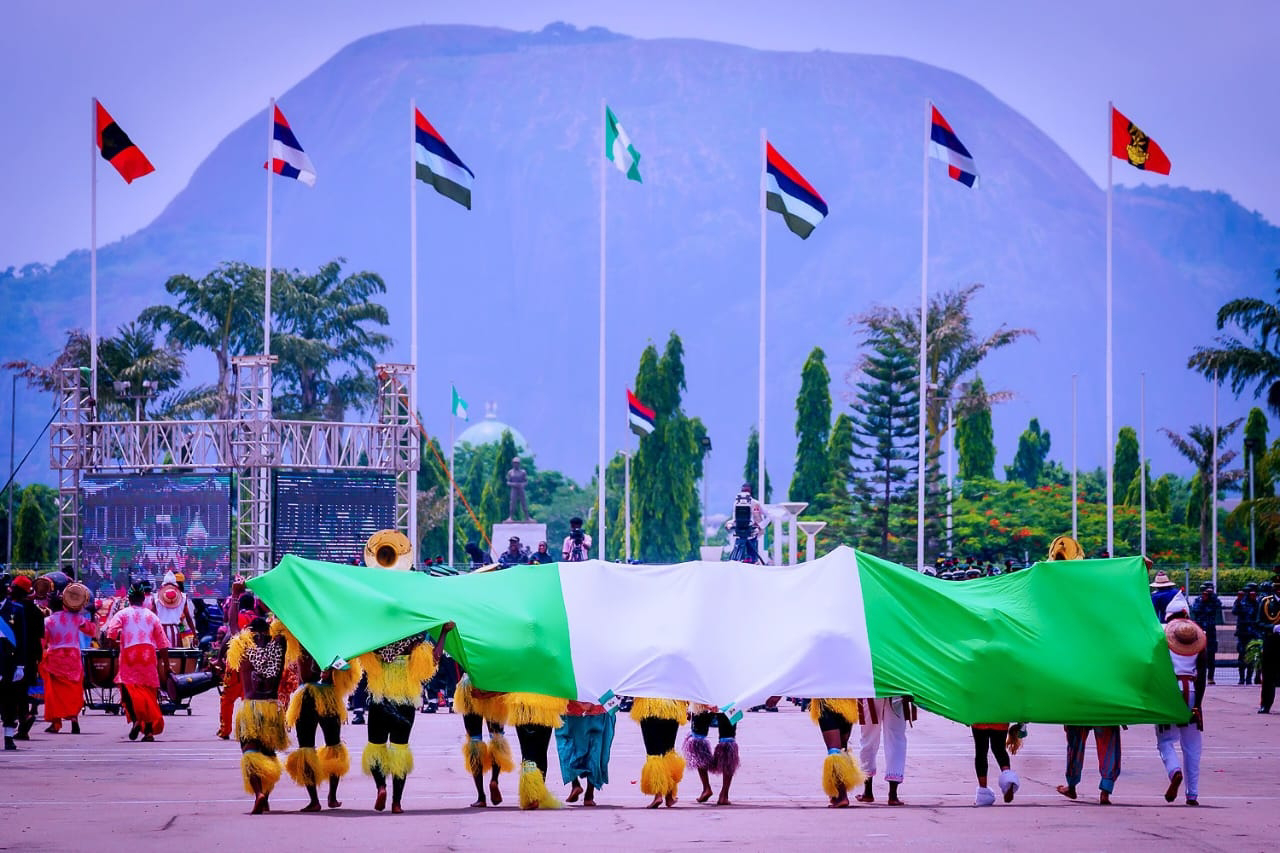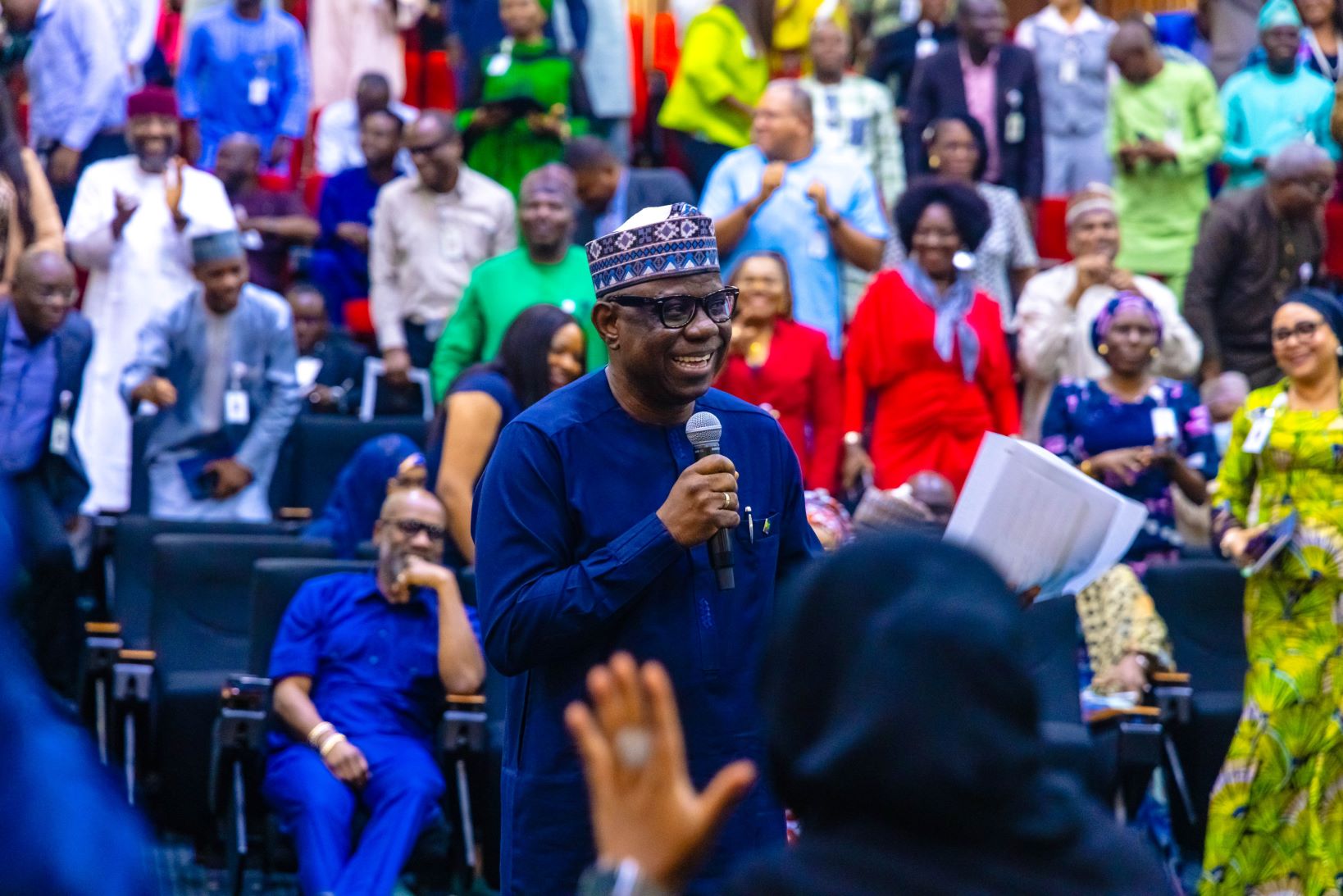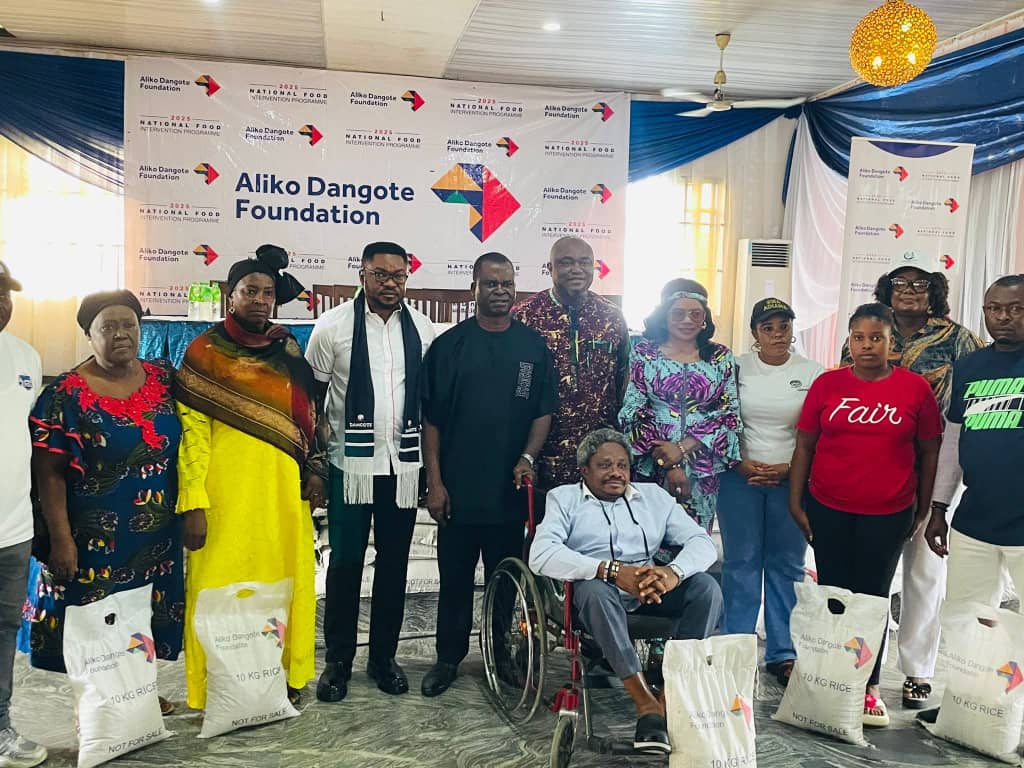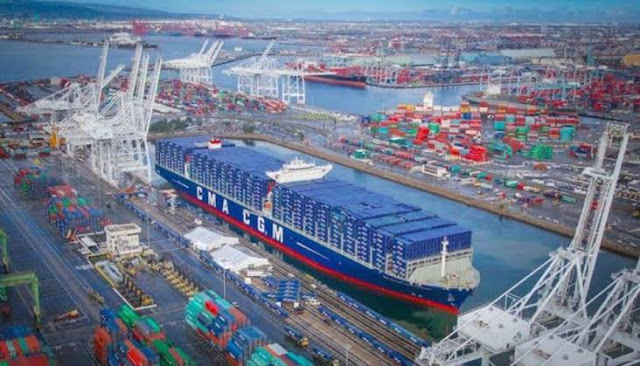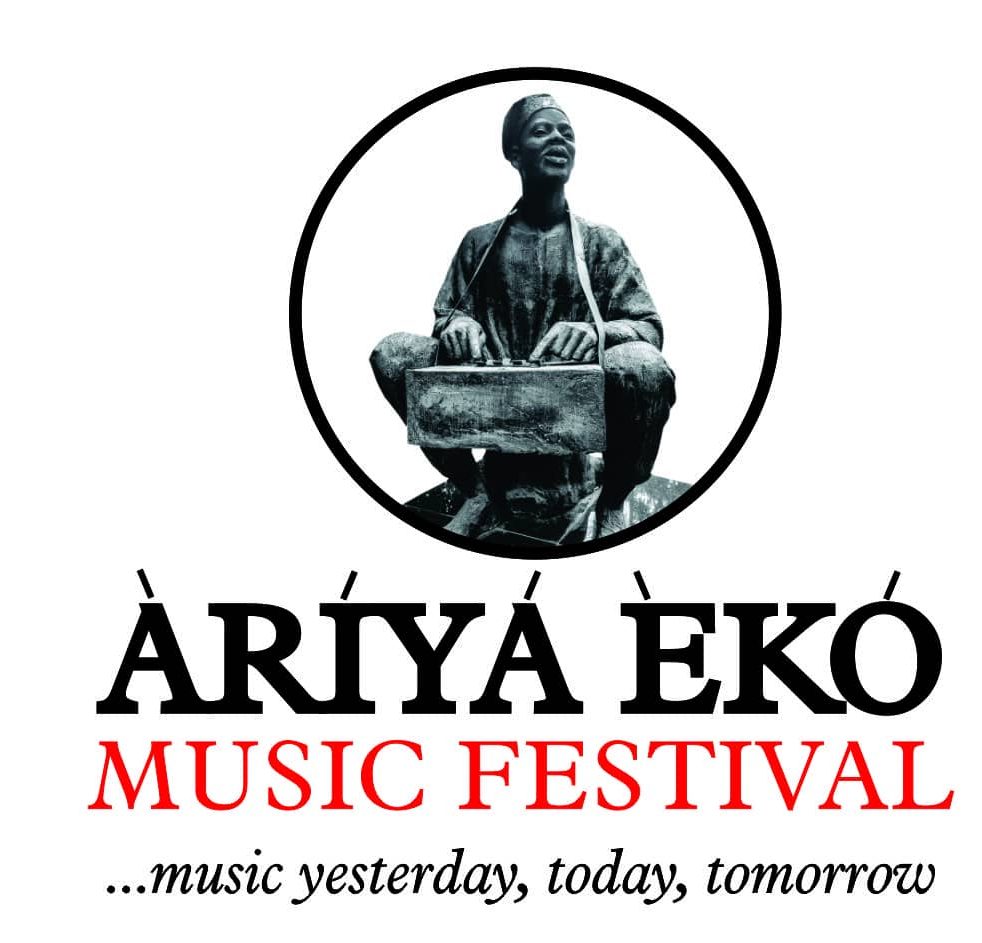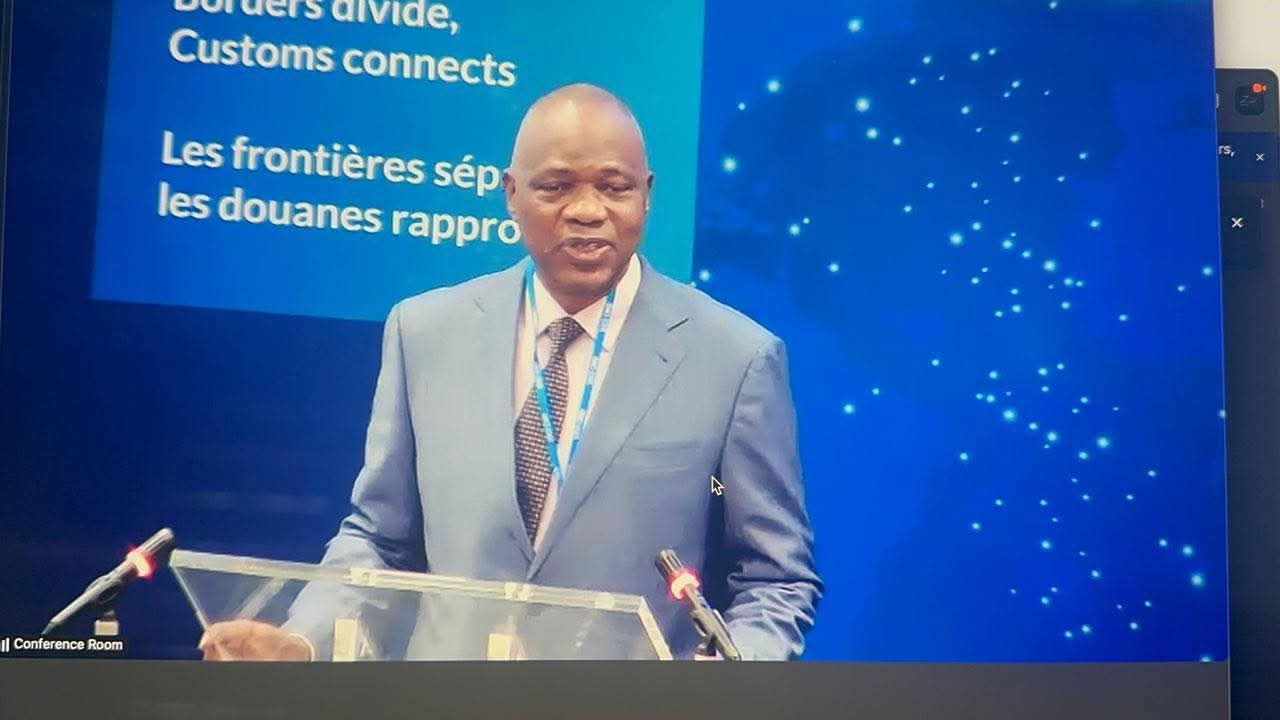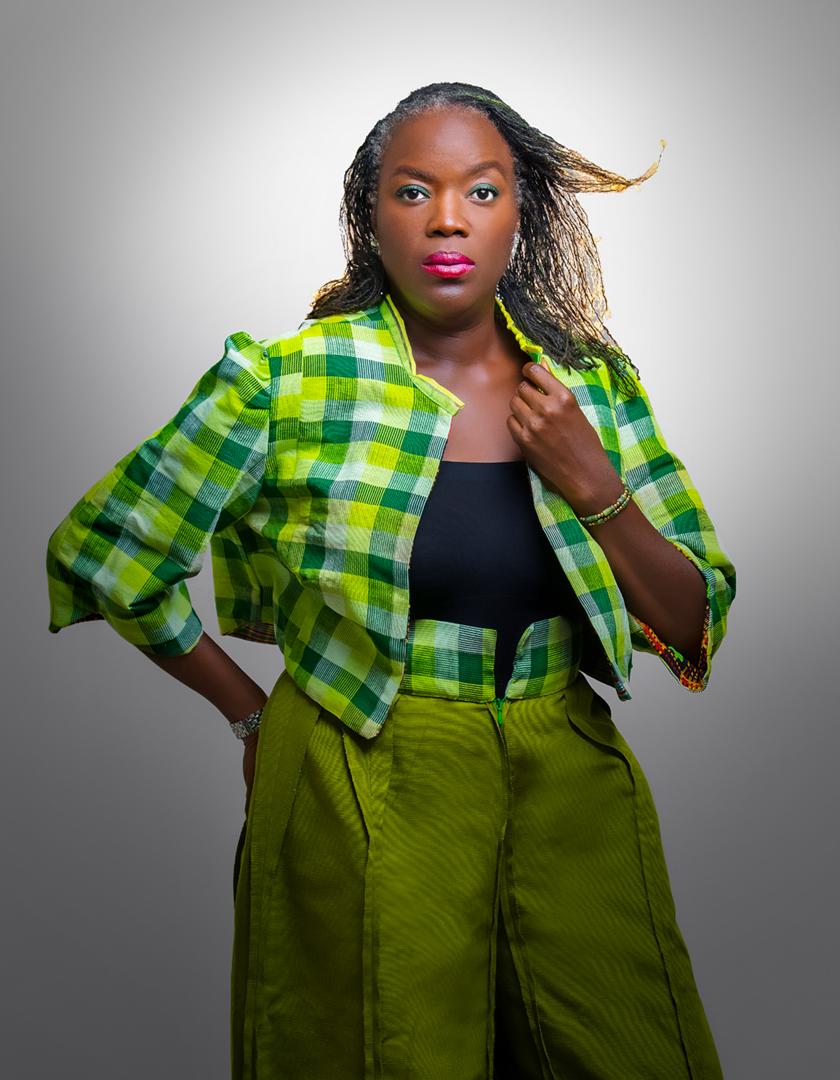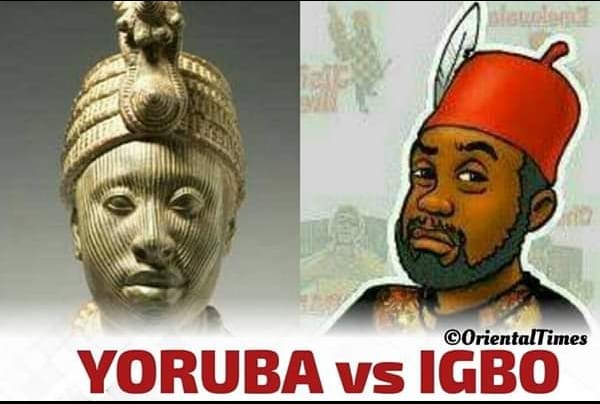By Wilson Macaulay
June 12, 2025
Across Nigeria, citizens gathered on Wednesday to commemorate three decades of Democracy Day — an annual observance held every June 12 to honor Chief Moshood Kashimawo Olawale (MKO) Abiola, the widely acclaimed winner of the annulled 1993 presidential election, and a symbol of Nigeria’s democratic struggle.
The day marks the 30th anniversary of what many still regard as Nigeria’s freest and fairest election — one that was cruelly nullified by the military regime of General Ibrahim Babangida. Despite that setback, MKO Abiola’s enduring legacy continues to unite Nigerians around the ideals of justice, equity, and democratic governance.
A Mandate Betrayed
On June 12, 1993, Nigerians defied ethnic, religious, and regional divisions to vote overwhelmingly for Abiola, the candidate of the Social Democratic Party (SDP), over his opponent, Alhaji Bashir Tofa of the National Republican Convention (NRC). But the celebration was short-lived. In a shocking move, the Babangida-led military government annulled the results, triggering national outrage and political unrest.
Abiola, undeterred, declared himself Nigeria’s rightful president on June 11, 1994. His bold move led to his arrest by the regime of General Sani Abacha. For the next four years, he was held in solitary confinement. As domestic and international pressure mounted for his release, hopes were dashed when Abiola died under suspicious circumstances on July 7, 1998 — just a month after Abacha’s sudden death. His passing marked a defining moment in Nigeria’s democratic journey, forever sealing his place in history as a martyr for democracy.
A Nation Remembers
Years of persistent advocacy finally bore fruit in 2018 when former President Muhammadu Buhari posthumously awarded Abiola the title of Grand Commander of the Federal Republic (GCFR), Nigeria’s highest national honor. Buhari also declared June 12 the new Democracy Day, replacing the former May 29 observance.
This year’s celebration, themed “Democracy: Honoring the Past, Securing the Future,” was particularly significant as it marked 30 years since the historic election and the seventh official commemoration of June 12 as Democracy Day.
In Abuja, the nation’s capital, President Bola Ahmed Tinubu — himself a key figure in the June 12 struggle — led a wreath-laying ceremony at Eagle Square. In a moving address, the President stated:
> “Thirty years ago, Nigeria chose unity, equity, and progress. MKO Abiola symbolized those values. Today, we reaffirm our commitment to building a democratic nation where the will of the people reigns supreme.”
Other national leaders, including former President Goodluck Jonathan, Vice President Kashim Shettima, and Senate President Godswill Akpabio, joined in paying glowing tributes to Abiola and other pro-democracy heroes.
Honoring a Hero in His Hometown
In Abeokuta, Ogun State — Abiola’s hometown — the atmosphere was both solemn and celebratory. Family members, political leaders, and activists gathered at the Abiola family house and the MKO Abiola Stadium for a special memorial service. Governor Dapo Abiodun described Abiola as “a pillar of democracy and a pan-African statesman who lives forever in the hearts of Nigerians.”
Delta Joins the National Celebration
In Asaba, Delta State, Governor Sheriff Oborevwori led the Democracy Day observance with a message of gratitude and hope. Congratulating Nigerians, he emphasized the enduring strength of democracy as rooted in “the power of the people,” and pledged his administration’s commitment to infrastructure development in line with democratic ideals.
> “Happy Democracy Day to all Deltans and Nigerians. We thank God for another year of democracy despite our challenges. I remain optimistic about its growth and eventual flourish,” he said.
Similarly, the Speaker of the Delta State House of Assembly, Rt Hon. Emomotimi Guwor, extended his greetings to Nigerians, adding:
> “Happy Democracy Day to us all. God bless our beloved nation, Nigeria.”
Guwor emphasized unity and cooperation between lawmakers and citizens in preserving democratic institutions, noting the significance of the day in fostering a collective sense of purpose.
A Lasting Symbol of Hope
Chief MKO Abiola’s life remains a powerful narrative of resilience and sacrifice. As a businessman, philanthropist, and politician, he championed the rights of the poor and marginalized. His campaign slogan, “Hope ’93,” still resonates as a call for justice, inclusion, and good governance.
Today, June 12 stands not just as a public holiday, but as a national symbol of rebirth — a reminder of the sacrifices made to secure the freedoms Nigerians enjoy today.
Youth Voices and Renewed Demands
Young Nigerians — many of whom were not yet born during the events of 1993 — also played a major role in this year’s commemorations, calling for deeper democratic reforms, transparency, and accountability in governance. They insisted that democracy must go beyond periodic elections to deliver real dividends to the people.
A Call to Remember and Act
As Nigeria marks 30 years since that pivotal moment, the spirit of Chief MKO Abiola continues to inspire a new generation committed to defending democratic values. Citizens, civil society groups, and leaders alike laid wreaths, offered prayers, and reaffirmed their resolve to never forget the man who gave his life for Nigeria’s democratic future.
Democracy, they agreed, is not a destination but an ongoing journey — one that requires vigilance, active participation, and a united front against injustice and tyranny.


